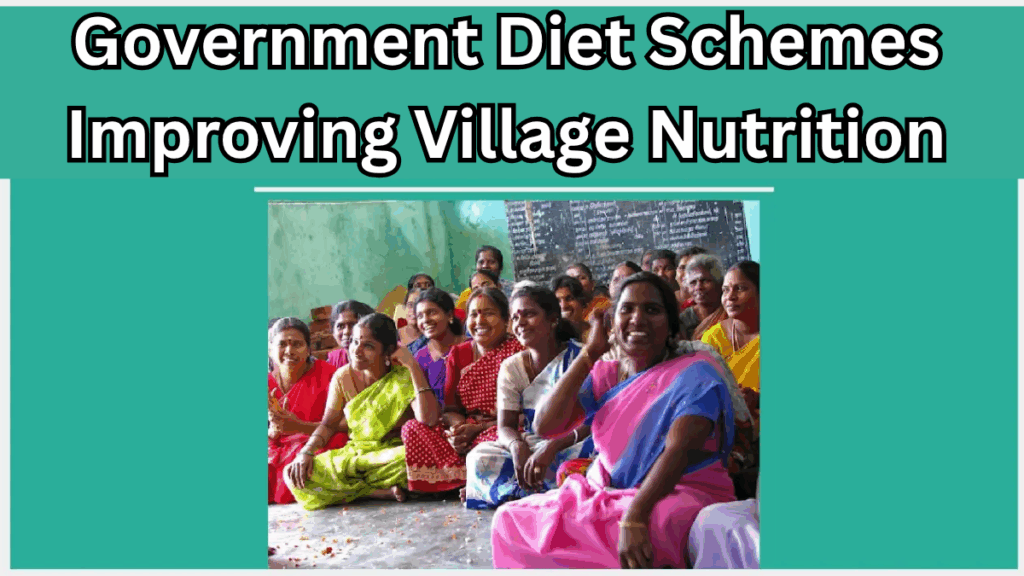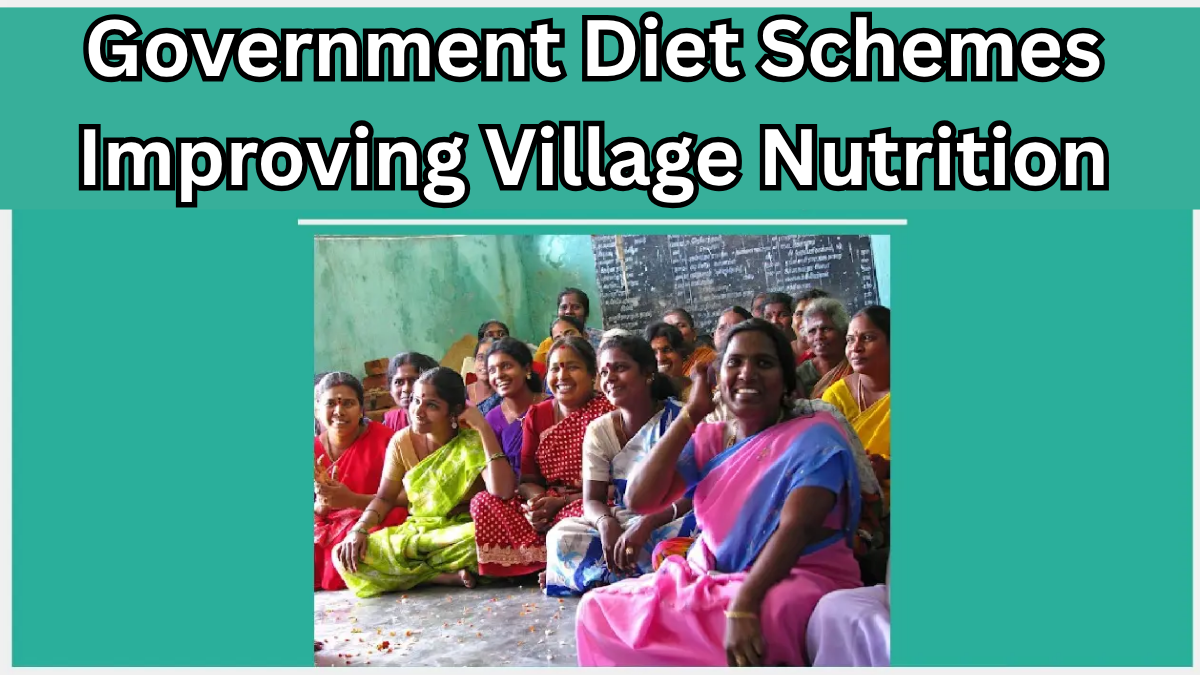Good nutrition is the backbone of a healthy and productive society. In rural India, where access to balanced meals has often been a challenge, Government diet programs have become a lifeline for many families. With the introduction of rural nutrition schemes 2025, the focus has shifted toward not only providing food but also improving its quality to meet modern nutritional standards.

Why Are Government Diet Programs Important for Villages?
For decades, rural communities have struggled with issues like malnutrition, undernourishment, and lack of awareness about dietary needs. These government-led initiatives aim to bridge that gap by:
-
Ensuring access to nutritious meals for children, pregnant women, and the elderly
-
Providing fortified foods to combat deficiencies
-
Promoting awareness about balanced diets and healthy eating habits
Key Rural Nutrition Schemes 2025
Here’s a look at the most impactful rural nutrition schemes 2025 that are reshaping village health:
| Scheme Name | Target Group | Key Benefits |
|---|---|---|
| Poshan 2.0 | Children & pregnant women | Supplementary nutrition & health checks |
| Pradhan Mantri Garib Kalyan Anna Yojana | Low-income families | Free food grains to combat hunger |
| Mid-Day Meal Scheme | School-going children | Nutritious meals to enhance learning |
| Integrated Child Development Services (ICDS) | Women & children | Fortified food, healthcare & education |
How These Programs Are Changing Lives
These schemes are not just about feeding people—they are about transforming rural communities. In 2025, a strong emphasis is being placed on:
-
Fortified foods: Adding vitamins and minerals to daily meals
-
Locally sourced ingredients: Supporting farmers and ensuring freshness
-
Awareness drives: Educating families about the long-term benefits of good nutrition
For instance, the Poshan 2.0 program now includes nutrition education sessions for mothers, ensuring that knowledge about healthy eating is passed down within families.
Real Impact: Stories from Villages
In villages across states like Bihar and Odisha, children are attending school more regularly because of the mid-day meal scheme. Women are reporting improved health during pregnancy, thanks to fortified supplements under ICDS. These real-life improvements show how government diet programs are directly uplifting communities.
What’s Next for Rural Nutrition?
The government plans to expand these initiatives further by:
-
Introducing AI-based monitoring to ensure transparency
-
Increasing collaboration with NGOs and local communities
-
Scaling up distribution networks for better reach
FAQs
1. What are the key objectives of rural nutrition schemes 2025?
The primary goal is to reduce malnutrition, ensure access to balanced meals, and promote healthy eating habits in rural areas.
2. Who benefits from these government diet programs?
Children, pregnant and lactating women, low-income families, and the elderly are the primary beneficiaries.
3. Are these schemes free of cost?
Yes, most schemes like the Mid-Day Meal and PM Garib Kalyan Anna Yojana provide food assistance at no cost to eligible beneficiaries.
4. How is the quality of food ensured?
Regular monitoring, inclusion of fortified ingredients, and community participation help maintain food quality and safety.
Click here to learn more
